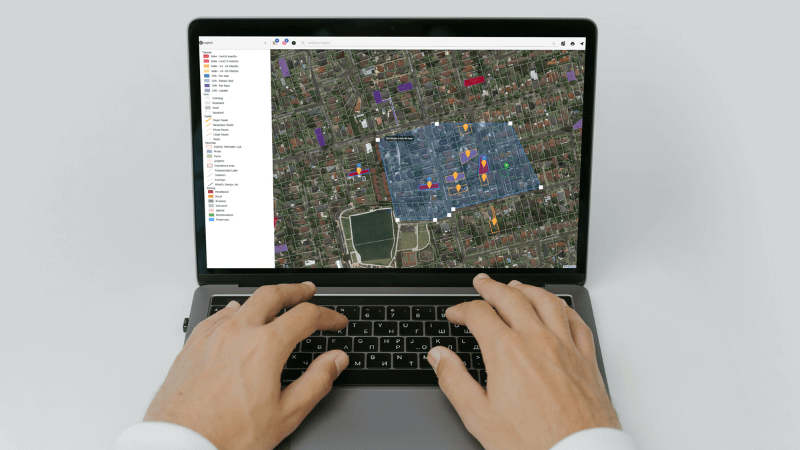4 min read – Real estate agency business plan
These days, every unfamiliar trip we make is aided by Siri, Alexa or another digital navigation guide that plugs into satellites to get us from A to B.
We know where we’re starting, and we know where we want to end up, but we don’t know which twists and turns to take to get us there most efficiently.
When we set out on an unknown trip, most of us would never even consider starting the car without a map or a guide to help us find our way. And yet, in small and medium businesses, in Australia, we do it every day.
We know where we’re starting in our businesses, we know what success looks like, but we set out without a clear plan for how to get there – a business plan.
The good news is, creating a real estate agency business plan is now easier than ever. Drawing on available data — as other industries do — helps you set realistic and measurable objectives, understand competitors better and create marketing plans that sell properties faster.
To get started, just log in!
1. Set objectives in your real estate agency business plan
One of the most important parts of a real estate agency business plan is setting your objectives — they are your ‘Point B’ in your ‘from A to B journey’.
In most agencies, your first objectives will relate to the growth of your business and can often be measured by market share.
To very easily get an estimate of your market share, log into NPData, use the unique filterable search to find properties sold in your area over a chosen period — a quarter or even a year — and export the data.
With a quick count, you can see how many properties there are in total, which ones were yours, and therefore what your market share has been.
By using different dates, you can track your market share over time and set a realistic objective for growth in the next quarter or year.
2. Know what you should make
In extending your growth objectives, most businesses will set objectives relating to revenue.
Using the same process as above for sold properties, you can track the approximate share of revenue your business has made, compared to the wider, local market, and make more accurate goals for the future.
You can also use this information to set specific KPIs for your sales team.
3. Find your specialisation
Most agencies and agents take one of two approaches to selling: either they sell anything and everything in their area, or they specialise in a particular type of property; perhaps luxury, agricultural land or even niche right down to three-bedroom family homes.
If you’re contemplating making your agency or even your agents specialists, so you can become the authority in the local market, data can help you plan that decision.
By jumping back into the very detailed filterable search on the data platform, you can find out what types of properties have been listed and sold most over the last month, year, two years — as long as you want!
You can also determine and compare overall value of that niche market over set periods of time and calculate possible revenue or commission from it.
Lastly, by drawing on local knowledge of specialisation, you can understand the competition and add it into the equation, calculating if specialisation is for you or not, and if so, what niche will be most beneficial.
4. Optimise your performance
Optimisation of any part of your business comes from knowing how you are currently performing, and what’s possible.
Partly, what’s possible comes down to your internal resources and processes, partly it comes from knowing what others are able to achieve.
A quick and easy way to see if your marketing performance is effective, is through comparison.
Using a filtered search, you can determine the average time on market for set period in your local area. You can also track it over time or you can conduct multiple searches to find out specific time on market averages for property categories, for example, apartments or three bedrooms homes.
By comparing your average time on market for niche categories to the wider market, you can set new benchmarks and objectives, and challenge your team to think differently in order to improve their own results (even if they are already leading!).
If you do find your team is behind, you can even use the data to better understand who exactly is in the particular suburb within which you are selling, to more closely and accurately target property marketing.
Each of the activities above takes up to ten minutes — a fraction of the time businesses usually spend creating objectives when developing a business plan, and allows more accurate and realistic objectives than ever before.
A real estate agency business plan is a crucial tool for businesses that want to grow and succeed, and a great plan is only a few clicks away when you have the right data on hand.




